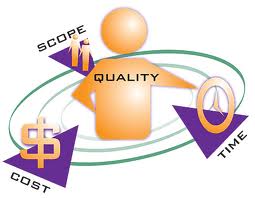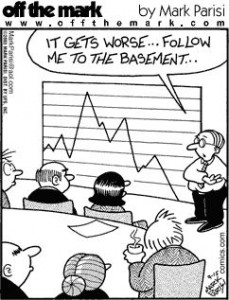| I read a great article from Business Improvement Architects:
http://www.bia.ca/articles/HowToEstablishaProjectManagementCulture.htm
The article neatly describes the problem with the current way organizations handle projects and how the cultures are evolving to have committees to steer the projects in the right direction. The article states the problem as, “Projects are becoming a critical part of corporate success yet research tells us that most projects do not fully succeed. According to the 2004 PriceWaterhouseCoopers Survey of 10,640 projects valued at $7.2 billion, across a broad range of industries, large and small, only 2.5% of global businesses achieve 100% project success and over 50% of global business projects fail. The Chaos Survey by The Standish Group reports similar findings. They say that 71% of all projects are either “challenged” (due to late delivery, being over-budget, or delivering less than required features), or “failed” and are cancelled prior to completion or the product developed is never used. Their statistics have not effectively changed since 1994.” |
| The article continues to site how the support of the organization was one of the main predictors of how a project would turn out as either successful or failure. The article states, “Business Improvement Architect’s 2005 project management research of over 750 organizations world-wide shows that 60% of Project Management Offices (PMO) say that the organizational culture is not supportive of the PMO. The major reason for project failure is that most organizations do not ensure that all projects they implement align with their organization’s corporate strategy”. Once companies are able to implement an organization culture that supports projects, the organization is able to experience the following benefits: |
| Projects will be aligned with corporate strategies, ensuring that business objectives are met.Projects come in on time, so your time to market is improved.
Projects come in on budget, potentially saving millions each year. Projects meet customer expectations so customer satisfaction levels increase. Project teams are more effective and efficient, leading to high morale and more dedicated staff. |
How has your company supported one of your projects? How does their support or lack of support contribute to the success or failure of the project?



